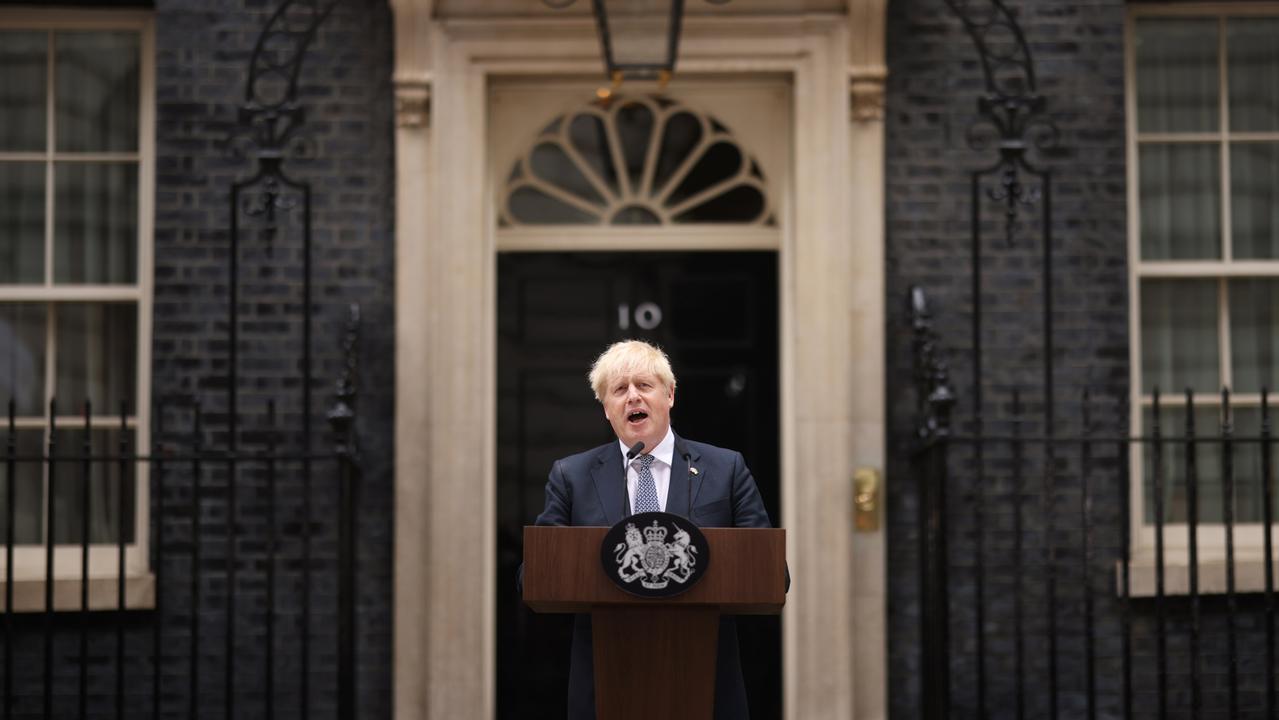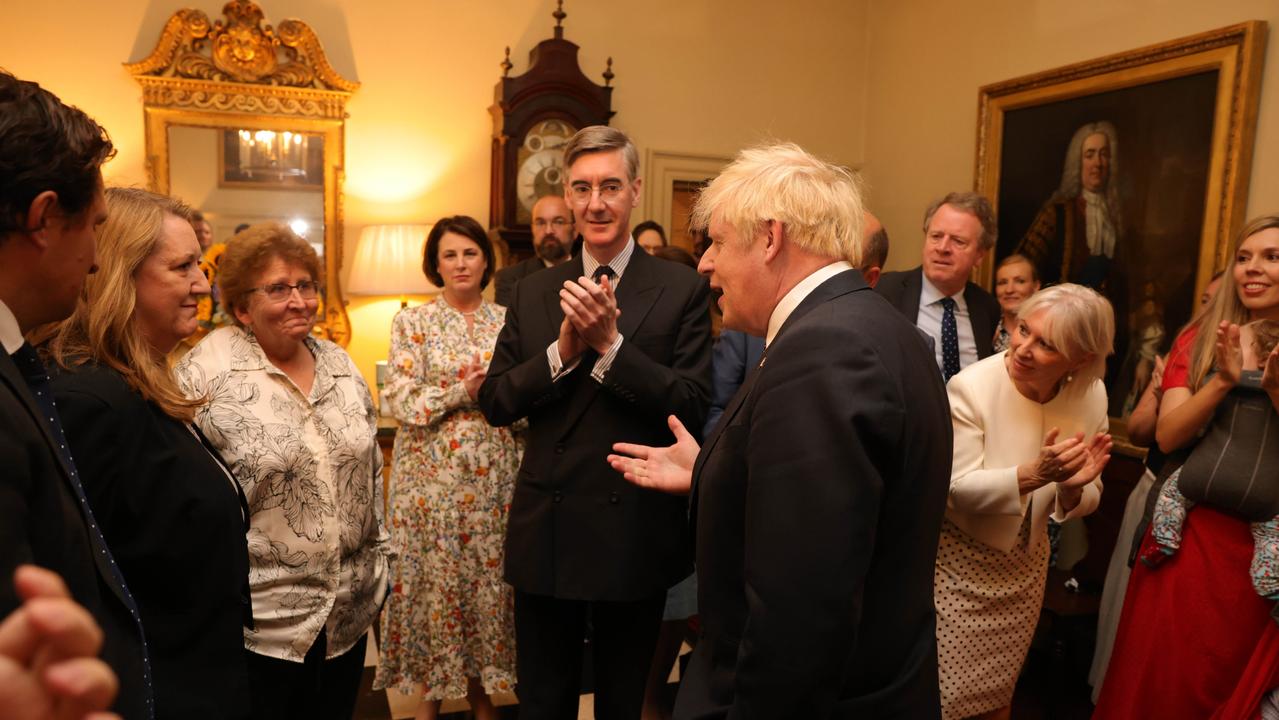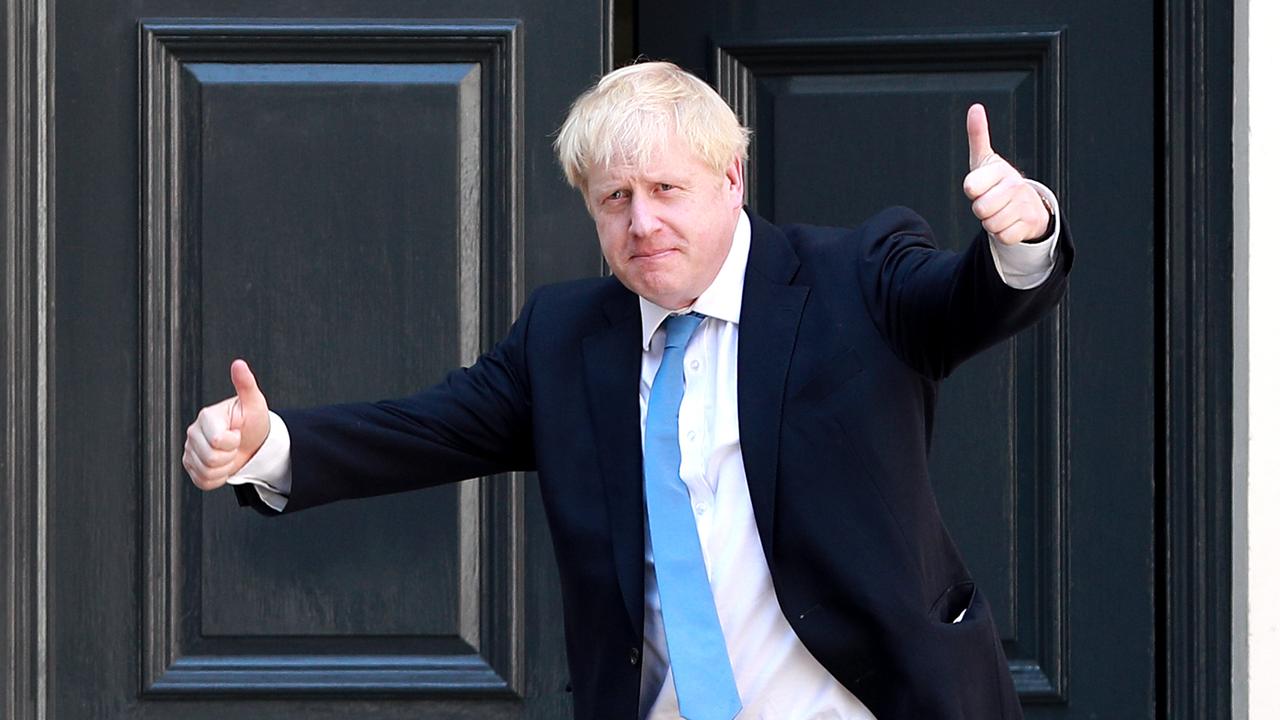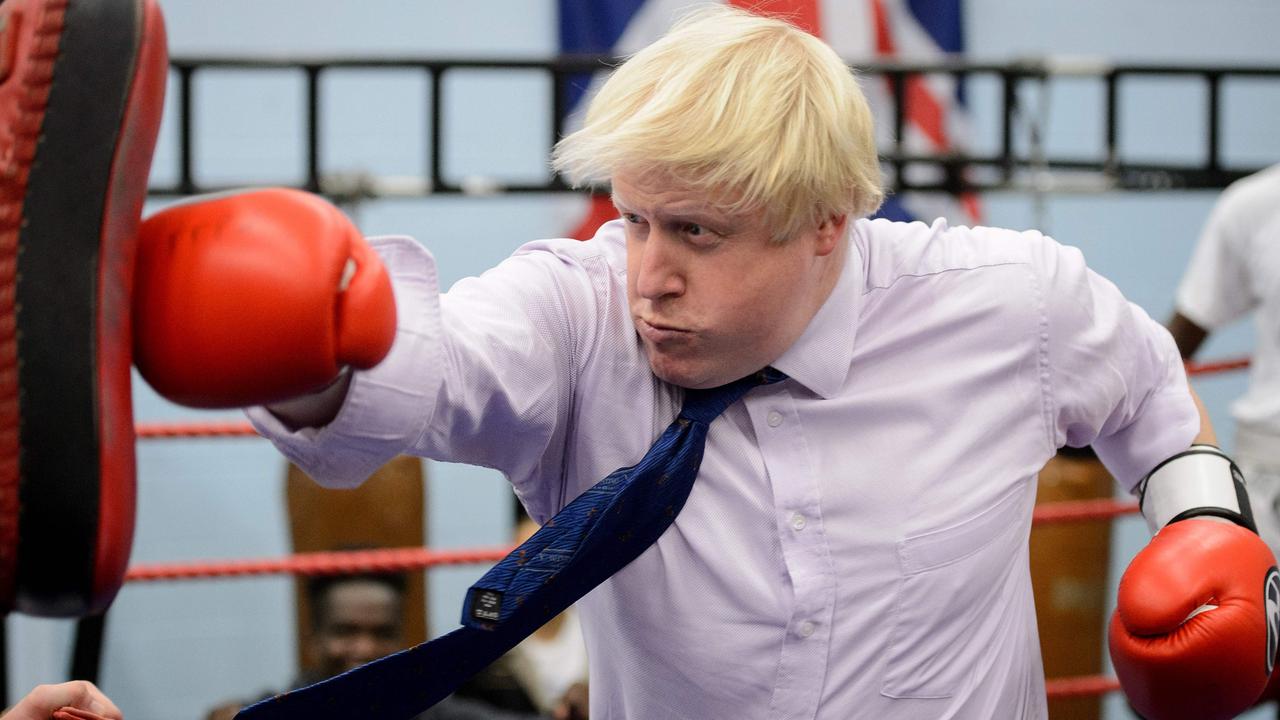What led to British Prime Minister Boris Johnson’s demise?
While the end is seemingly nigh for British Prime Minister Boris Johnson, where it began to unravel is less obvious. See what led to his demise.
The thing about the greased piglet, former British prime minister David Cameron said in 2019, is that he manages to slip through other people’s hands where mere mortals fail.
In the years since, the stain of a podgy and pink slippery pig is the only mud to have stuck to Boris “Teflon” Johnson. Until now.
As he faced Prime Minister’s Questions on the morning of a Conservative Party bloodbath, Johnson shook his bowed head amid the slow-motion unravelling of his dream to be the next Winston Churchill.
“He grabbed my arse, and then he slowly moved his hand down in front of my groin. I froze,” read opposition leader Kier Starmer, recounting sexual assault allegations at the centre of the downfall.
“[Johnson] knew the accused minister had previously committed predatory behaviour, but he promoted him to a position of power anyway – why?”
Johnson’s indifference to deputy chief whip Chris Pincher’s reputation of misconduct was the final straw in a litany of scandals that ended in this week’s mass mutiny.

Chancellor Rishi Sunak and Health Secretary Sajid Javid were the first to walk out. Less than 36 hours later, more than 50 MPs were gone and a “Quit Squad” including staunch loyalist Priti Patel, new Chancellor Nadhim Zahawi and Cabinet Ministers Grant Shapps and Simon Hart marched on No 10 to demand his resignation.
A defiant Johnson found new and evermore colourful ways to cling on for one more night even as new and evermore loyal allies turned the first trickle of resignations into a 100-year flood. But the polls, the punters, and the politics all conspired to leave the Prime Minister wallowing in a bog too deep even for a petroleum-covered porky to squirm out of.
A snap YouGov poll found that 69 per cent of Britons wanted Johnson to resign, with only 18 per cent wanting him to stay. Among Conservatives, 54 per cent wanted him gone while 33 per cent wanted him to stay.
“Johnson was never that popular as Prime Minister,” Tim Bale, a professor of politics at the Queen Mary University of London, told News Corp Australia.
“But for most voters and most MPs the final straw, especially coming after partygate, was his knowingly appointing a sex pest, which only confirmed what an amoral charlatan he was.”

Even an accomplished escape artist like Johnson couldn’t beat the odds, with betting markets giving a 91 per cent probability that he would quit.
Those odds point to Defence Secretary Ben Wallace as the top contender to replace Johnson at 2/1, according to Sky Bet. It lines up with a YouGov poll of Conservatives that has Wallace — riding high on his Ukraine response – beating everyone in a head-to-head contest by a significant margin.
Wallace hasn’t weighed in on the race, but deputy PM Dominic Raab and “frenemy” Michael Gove already ruled themselves out. Javid, who set off the exodus, is deciding whether to enter the fray. Sunak, meanwhile, reportedly set up a temporary campaign office almost immediately. Foreign secretary Liz Truss, another favourite, is yet to declare.
Whoever replaces Johnson, it’ll shake up the Tory landscape as they try to regain voter confidence ahead of the next election in two years.
“The big question is the extent to which whatever the eventual winner promises their colleagues, and the wider membership in order to win, contrasts with what the country as a whole wants to hear,” Mr Bale said.
“Tax cuts maybe, but a return to austerity on public spending? I don’t think so.”

Precisely when Johnson’s premiership will end remains an open question. To the fury of his party, he vowed to remain as caretaker until a new leader is chosen. MPs want him to leave immediately, to be replaced temporarily by deputy Raab, for fear Johnson is stalling to slip through their grasp once more.
While the end is seemingly nigh, where it began to unravel is less obvious. “Partygate” is considered the first dent in his Teflon armour. He was fined for holding parties while the rest of the country was locked down during the height of the Covid pandemic, including the night the Queen mourned the death of Prince Phillip alone.
For those who know Johnson best, Partygate was just the latest notch in a long-running thread from his premier to mayor of London to a mere journalist with ambitions of becoming Britain’s greatest leader.
Max Hastings, the former editor of the UK’s Daily Telegraph, warned in 2019 that becoming Prime Minister would lay bare Johnson’s absolute inability to do the job.
“I have known Johnson since the 1980s,” Hastings wrote in The Guardian. “While he is a brilliant entertainer who made a popular maître d’ for London as its mayor, he is unfit for national office, because it seems he cares for no interest save his own fame and gratification.”
“He supposes himself to be Winston Churchill, while in reality being closer to Alan Partridge,” he added, comparing Johnson to the inept British TV character played by comedian Steve Coogan.
Time jump a few decades, and Dominic Cummings – the architect of Johnson’s 2019 landslide election victory and delivery of Brexit – revealed in his blog the moment a “fundamental shift” in the Prime Minister’s attitude turned his electoral mandate into a farce of personal appetites.
Urged on by mistress-turned-fiancee Carrie Symonds, No 10 was said to be reshaped in 2020 to remove constraints on Johnson’s whims and ideas to get her friends into positions of influence.
In November that year, Cummings claimed, Johnson demanded the appointment of Symonds’ friend as a new spokesperson because “she’s going crackers”. Johnson supposedly asked: “Why can’t I be my own chief of staff? Why can’t I be my own director of comms? “Yes, I’ll f**k up all sorts, but so what? If I can’t do what I want, what’s the point of being prime minister?”
Since then, Cummings wrote, that’s essentially what happened.
“No 10 became largely an extension of his appetites and fears, shifting many times per day in response to whims and pressure,” said Cummings, who accelerated the “regime change” by contradicting claims Johnson was unaware of allegations against Pincher.
“If [Johnson] didn’t know about Pincher as he’s claiming, why did he repeatedly refer to him laughingly in no 10 as ‘pincher by name pincher by nature’ long before appointing him …?” Cummins said in a tweet.
“If MPs leave him in situ there’ll be CARNAGE,” he added after the resignation.
“I know that guy & I’m telling you – he doesn’t think it’s over, he’s thinking ‘there’s a war, weird shit happens in a war, play for time play for time, I can still get out of this, I got a mandate, members love me, get to September …’

Despite losing support everywhere – even from the UK’s Conservative media – the deeper Johnson sunk into the muck the tighter he clung to office – in stark contrast to the 1990 resignation of Margaret Thatcher, widely considered to hold the title, long sought by Johnson, of the greatest since Churchill.
“If the whole Cabinet walked out, Boris still wouldn’t resign,” said ex-girlfriend Petronella Wyatt, who famously had a four-year affair with Mr Johnson while they worked at Spectator magazine.
“Boris will never resign. He thinks he has a God-given right to rule in perpetuity,” she added.
But without such divine intervention to withstand the deluge of affairs, scandals and resignations, the seemingly-mortal Alexander Boris de Pfeffel Johnson finally did the one thing Churchill was famous for refusing: Surrender.
For now.
More Coverage
Originally published as What led to British Prime Minister Boris Johnson’s demise?




